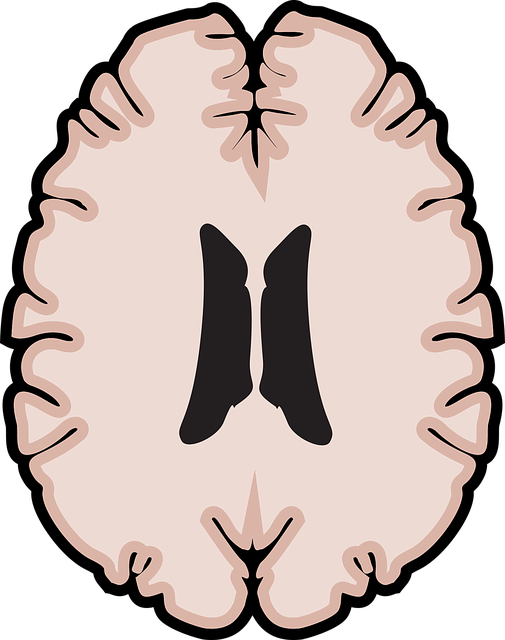Litleton Family Counseling Therapy emphasizes the importance of coping skills in navigating life's challenges, especially for families managing stress, anxiety, or trauma. They offer a comprehensive approach, including evidence-based therapy, to enhance emotional regulation and build resilience. Their multi-faceted strategy involves identifying distress signs, teaching empathy, preventing burnout, fostering open communication, and promoting positive thinking. Through programs like Mental Wellness Coaching, they empower individuals to manage stress, view challenges as opportunities for growth, and develop personalized coping mechanisms. Success is measured using Compassion Cultivation Practices and participant feedback to ensure tailored programs that improve mental wellness within the community.
Coping skills development is a vital process for families navigating life’s challenges. This comprehensive guide explores effective strategies to empower individuals and strengthen family bonds. We delve into understanding coping mechanisms, highlighting the transformative power of Littleton Family Counseling Therapy. By identifying unique and collective responses, families can build resilience and adapt to stress. The article offers practical tips for everyday implementation, ensuring long-lasting positive impacts. Discover how measuring success through assessment enhances the effectiveness of coping skills training.
- Understanding Coping Skills: An Overview for Families
- The Role of Littleton Family Counseling Therapy in Skill Development
- Identifying Individual and Collective Coping Mechanisms
- Strategies for Building Resilience in Everyday Life
- Measuring Success: Assessing the Impact of Coping Skills Training
Understanding Coping Skills: An Overview for Families

Coping skills are essential tools for navigating life’s challenges and maintaining mental well-being. For families seeking support, understanding these skills is a powerful first step. Littleton Family Counseling Therapy recognizes that every family has unique dynamics, and coping strategies can vary accordingly. By learning effective techniques, parents and caregivers can guide their children in managing stress, anxiety, or even trauma, fostering a stronger and more resilient family unit.
The journey towards healthier coping begins with recognizing the need for change. This may involve identifying signs of distress in oneself or a loved one. For instance, if a child expresses feelings of overwhelming sadness or aggression frequently, it could be an indication that they are struggling to cope with certain situations. Here, trauma support services can play a vital role in providing resources and strategies, such as empathy-building techniques, to address underlying issues. Burnout prevention is also crucial, ensuring that family members learn healthy ways to manage their own stress before supporting others.
The Role of Littleton Family Counseling Therapy in Skill Development

Littleton Family Counseling Therapy plays a pivotal role in coping skills development for individuals and families alike. By fostering open communication and providing a safe, supportive environment, counseling sessions equip clients with effective strategies to navigate life’s challenges. Through evidence-based therapeutic approaches, therapists help clients enhance their emotional regulation, cultivate inner strength, and learn stress reduction methods tailored to their unique needs.
This holistic process not only addresses immediate concerns but also empowers individuals to build resilience against future stressors. The collaborative nature of Littleton Family Counseling Therapy ensures that each session is a step towards personal growth, where clients gain insights into their emotions, behaviors, and relationships, ultimately leading to improved overall well-being.
Identifying Individual and Collective Coping Mechanisms

In navigating life’s challenges, individuals and communities alike employ diverse coping mechanisms to manage stress and adversity. At Littleton Family Counseling Therapy, we recognize that both personal and collective strategies play a pivotal role in fostering resilience. While individual coping skills cater to personal needs, collective mechanisms offer a supportive network during crises. This interconnectedness is crucial for effective crisis intervention guidance. By understanding these distinct yet interrelated approaches, individuals can build resilience and enhance their overall well-being.
Self-care routine development is a prime example of an individual coping mechanism that empowers people to take charge of their mental health. Implementing strategies such as regular exercise, mindfulness practices, and maintaining a balanced diet contributes to a robust self-care routine. In contrast, collective coping mechanisms involve community support systems like peer groups, religious congregations, or local support networks. These outlets provide a sense of belonging and offer valuable crisis intervention resources, creating a tapestry of resilience in the face of life’s uncertainties.
Strategies for Building Resilience in Everyday Life

Building resilience is a key aspect of coping skills development, enabling individuals to navigate life’s challenges with adaptability and strength. At Littleton Family Counseling Therapy, we understand that fostering mental wellness requires a multi-faceted approach, especially when it comes to resilience. One effective strategy involves encouraging clients to cultivate positive thinking patterns. By reframing negative thoughts and adopting an optimistic outlook, individuals can better cope with stress and adversity. This cognitive shift empowers people to view challenges as opportunities for growth rather than insurmountable obstacles.
Our Mental Wellness Coaching Programs Development focuses on teaching practical tools for risk assessment and stress management. By understanding personal triggers and developing healthy coping mechanisms, clients gain a sense of control over their emotional well-being. This proactive approach equips individuals with the skills to assess and mitigate potential mental health risks, ensuring they have the resources to build and maintain resilience in their daily lives. Through these comprehensive strategies, Littleton Family Counseling Therapy aims to empower clients to lead fulfilling lives despite life’s unpredictable nature.
Measuring Success: Assessing the Impact of Coping Skills Training

Measuring success in coping skills development is a crucial aspect of any therapeutic journey. At Littleton Family Counseling Therapy, we utilize various methods to assess the impact and effectiveness of our programs, particularly in relation to Compassion Cultivation Practices. By integrating feedback from participants and tracking improvements in their overall mental wellness, we can gauge the tangible benefits of our training sessions. This process involves analyzing pre-and post-program surveys, where individuals reflect on their emotional regulation, stress management, and resilience levels.
Through these evaluations, we aim to understand how the Mental Wellness Podcast Series Production has contributed to enhancing their coping strategies. By fostering a deeper awareness of mental health issues and providing practical tools, our therapy sessions encourage sustainable change. The feedback collected helps us refine our approach, ensuring that each program is tailored to meet the unique needs of those seeking support, ultimately promoting better mental health awareness in our community.
Coping skills development is a powerful tool that enables families to navigate life’s challenges with resilience and adaptability. As highlighted in this article, understanding and mastering these skills can significantly improve mental well-being. The role of Littleton Family Counseling Therapy is invaluable, offering personalized strategies to identify and enhance both individual and collective coping mechanisms. By integrating effective techniques from counseling into daily routines, families can build resilience, fostering a sense of security and empowerment. Through measurable assessments, the impact of coping skills training becomes evident, demonstrating its ability to transform lives and strengthen family bonds.










